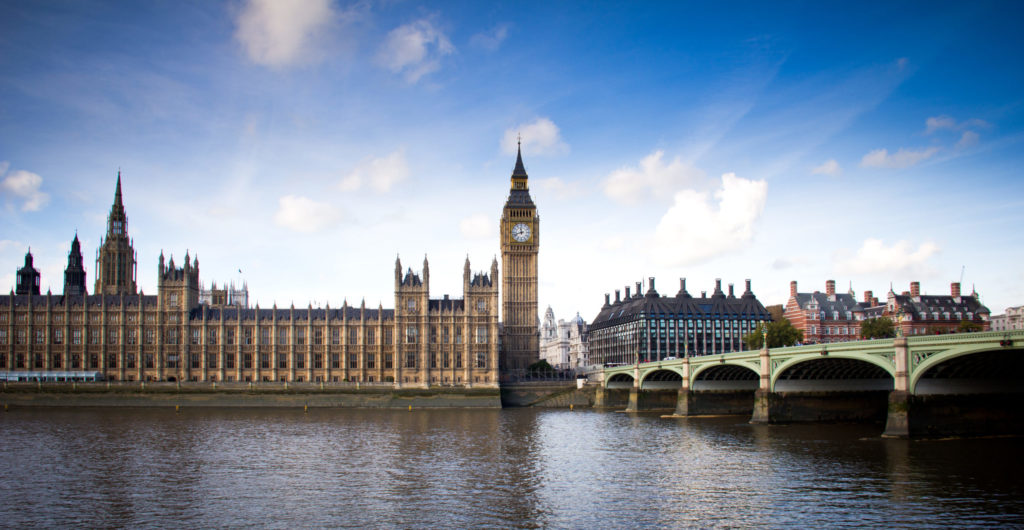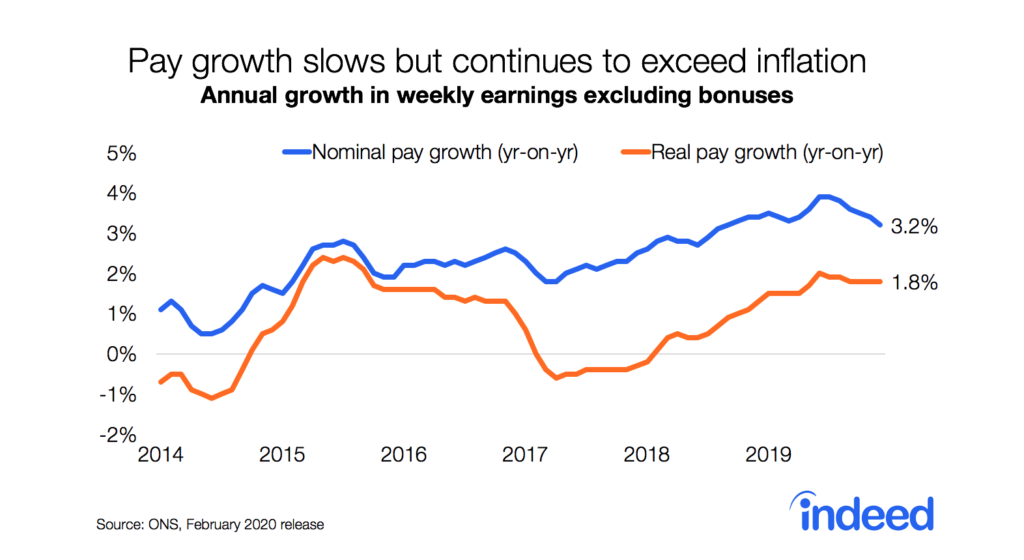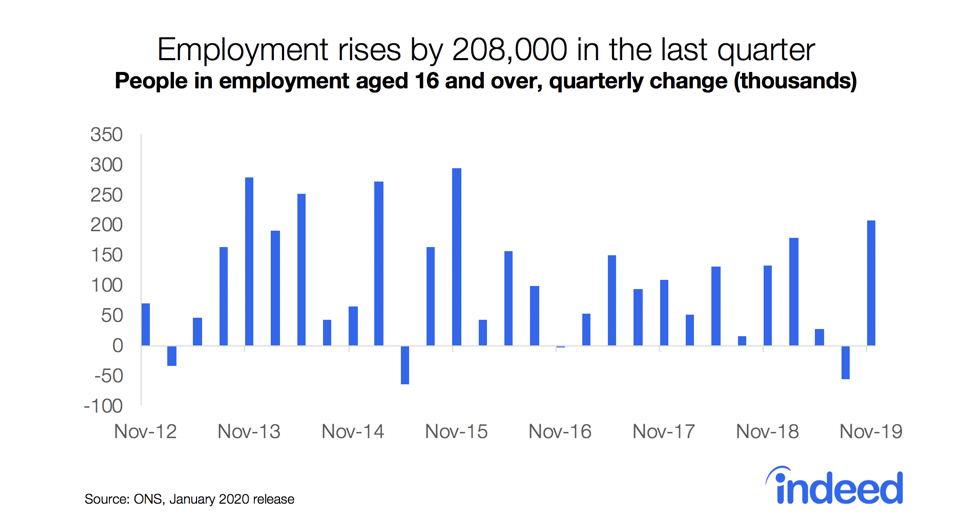Key points:
- Searches for foreign jobs on Indeed surged immediately after exit poll published
- Searches for jobs outside the UK were 25% higher than on the prior Friday
- Most popular destinations were Canada, Ireland and Italy
Searches for foreign jobs surged 25% immediately after last week’s General Election exit poll was published, according to data from Indeed.
The Conservative Party was swept to power with its largest majority since 1987 in a result that almost certainly means that the UK will leave the EU on 31 January 2020. As the events on the night unfolded and the political picture became clearer, an elevated number of jobseekers started looking for jobs abroad.
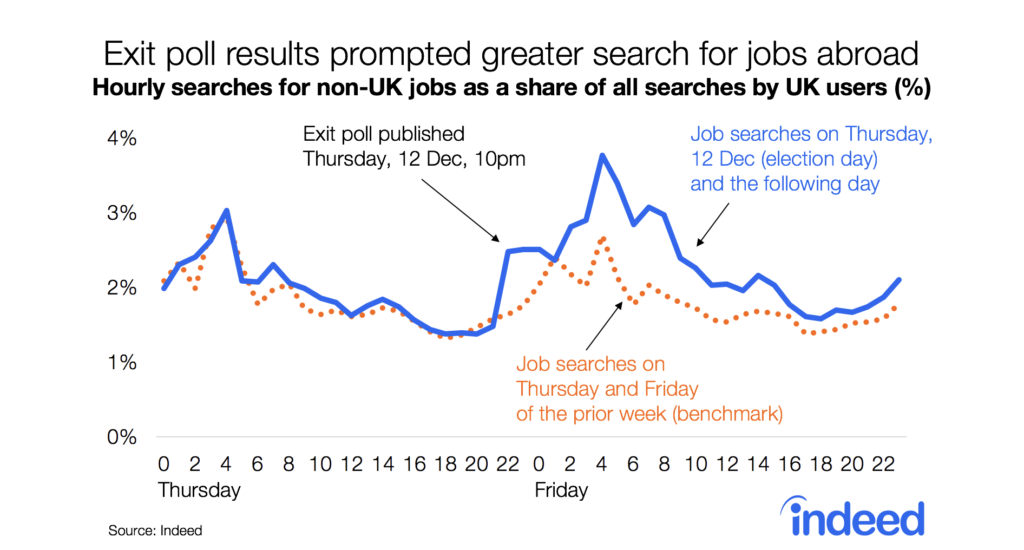
Searches for foreign jobs on Indeed surged immediately after exit poll results were published at 10pm on Thursday evening. On Friday, 13th December, as jobseekers digested the final election results, searches for jobs outside the UK were 25% higher than on the prior Friday, calculated as a share of all searches by Indeed users with a UK IP address. Searches for jobs abroad peaked at approximately 4am when the Conservatives were on course to securing their overall majority.
The destination countries that saw the biggest increase in job searches between Friday the 6th and Friday the 13th were: Canada (up 111%), Ireland (44%), Italy (32%), Germany (28%), Australia (20%) and Poland (20%).
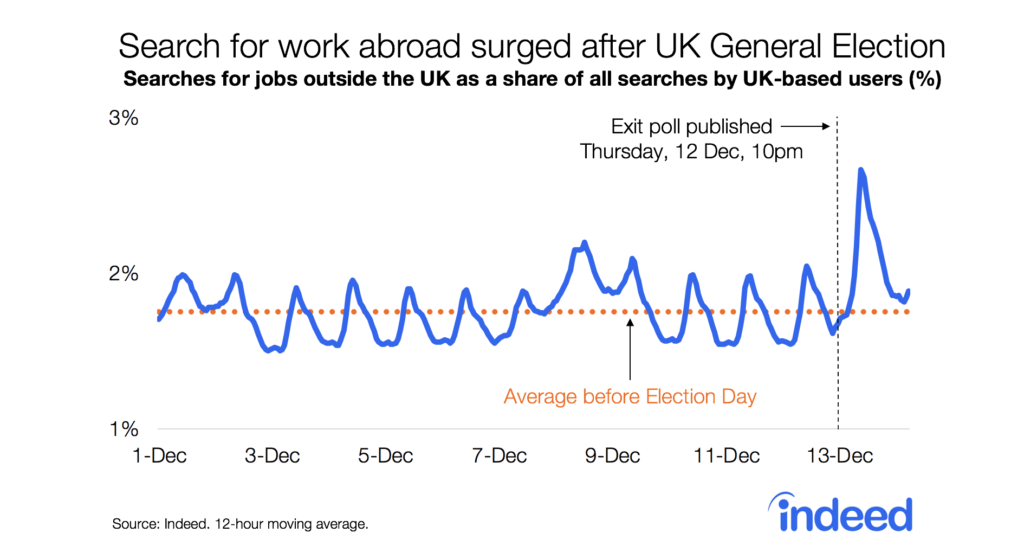
The countries that saw the biggest increases, Canada and Ireland, are English-speaking countries with strong ties to the UK. There were also large rises in searches for jobs in other European countries, which suggests UK citizens could be looking to work on the continent or foreign workers could be thinking about returning home. These non-UK citizens could also be concerned about their immigration status after the Brexit transition period due to end in December 2020.
These findings suggest jobseeker behaviour can be quickly influenced by political events. The surge in searches for jobs abroad is a significant one and follows a pattern of jumps in jobseeker interest in working abroad after similar events. A previous study by Indeed showed UK-based jobseekers immediately looked for work in other countries after the Brexit referendum result in 2016. Searches from the UK to the rest of the world were 73% higher at their peak on 24 June — the day after the vote — than the average in the days before the results were announced.
It seems UK-based jobseekers were paying close attention to the election result not just for news about their local candidates but to help inform career choices, too. These patterns are concerning for public and private-sector employers struggling to find hires in today’s tight labour market.

